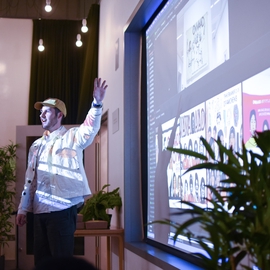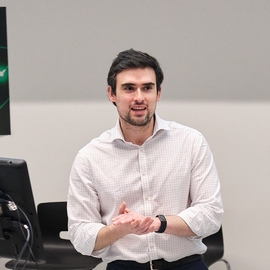Abstract
With liquefied natural gas becoming increasingly prevalent as a flexible source of energy, the design and optimization of industrial refrigeration cycles becomes even more important. In this article, we propose an integrated surrogate modeling and optimization framework to model and optimize the complex CryoMan Cascade refrigeration cycle. Dimensionality reduction techniques are used to reduce the large number of process decision variables which are subsequently supplied to an array of Gaussian processes, modeling both the process objective as well as feasibility constraints. Through iterative resampling of the rigorous model, this data-driven surrogate is continually refined and subsequently optimized. This approach was not only able to improve on the results of directly optimizing the process flow sheet but also located the set of optimal operating conditions in only 2 h as opposed to the original 3 weeks, facilitating its use in the operational optimization and enhanced process design of large-scale industrial chemical systems.

Applied Data-Driven Optimisation
I am a PhD student at Imperial College London & 2023 Enrichment student at the Alan Turing Institute. I have a background in Chemical Engineering and still enjoy teaching labs at Imperial College. Alongside my work in process systems engineering, I am affiliated with Winchester School of Art producing installations with the Tate on the intersection between AI and art. My interests include Bayesian optimisation, human-in-the-loop machine learning, cricket 🏏, and darts 🎯.

Principal Investigator of OptiML
Antonio del Rio Chanona is the head of the Optimisation and Machine Learning for Process Systems Engineering group based in thee Department of Chemical Engineering, as well as the Centre for Process Systems Engineering at Imperial College London. His work is at the forefront of integrating advanced computer algorithms from optimization, machine learning, and reinforcement learning into engineering systems, with a particular focus on bioprocess control, optimization, and scale-up. Dr. del Rio Chanona earned his PhD from the Department of Chemical Engineering and Biotechnology at the University of Cambridge, where his outstanding research earned him the prestigious Danckwerts-Pergamon award for the best PhD dissertation of 2017. He completed his undergraduate studies at the National Autonomous University of Mexico (UNAM), which laid the foundation for his expertise in engineering.